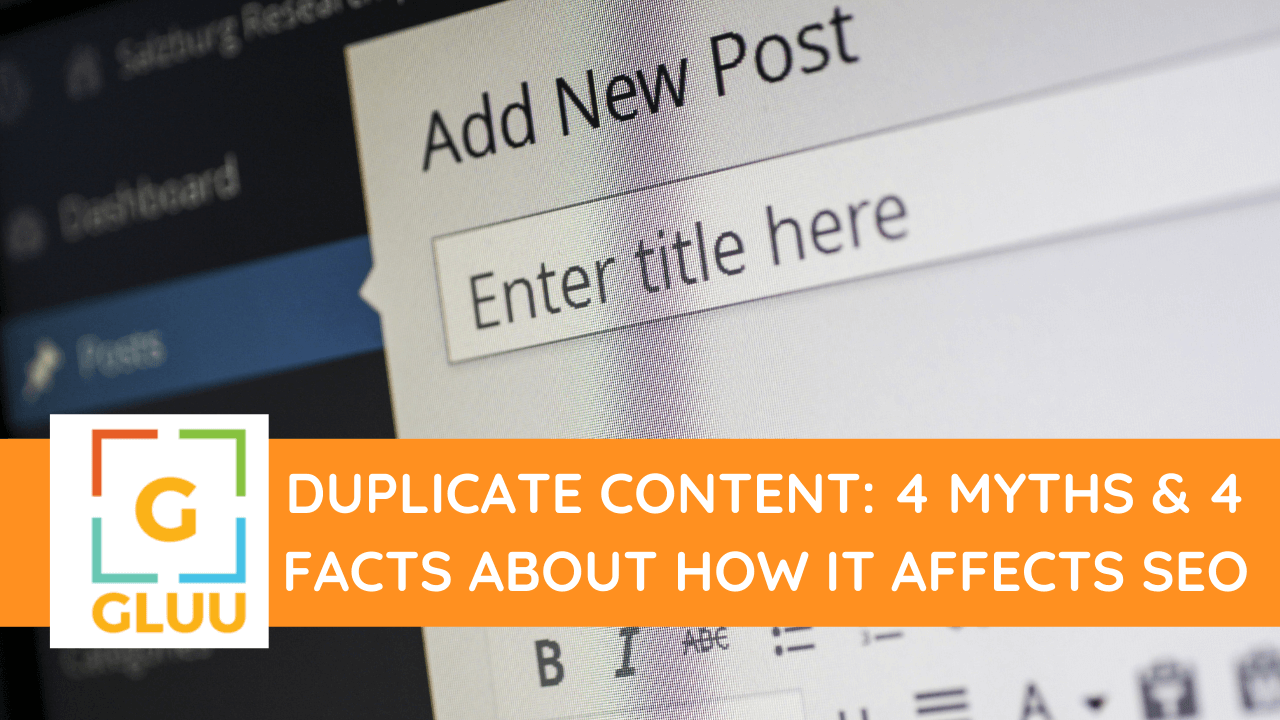Duplicate content is defined as identical or near-identical content that appears on multiple websites. This can be caused by different factors, such as accidentally publishing the same article on multiple sites, plagiarism, or scraping content from other sites. Duplicate content can negatively affect a website's search engine rankings, since Google and other search engines may penalize sites with duplicate content.
We've all heard the term bandied about in relation to SEO, but what does it actually mean? And more importantly, should we be worried about it? Let's take a look at five common myths and facts about duplicate content and set the record straight.

When it comes to duplicate content, there are a lot of myths and misconceptions out there. Some people believe that having duplicate content on your website will hurt your search ranking. Others think that you can't have more than one version of a page on your website.
But the truth is, as long as you're not trying to game the system, duplicate content won't hurt your search ranking. In fact, it can even help you rank higher if you use it wisely. Here's why;
Google likes diversity. Google loves websites that offer a variety of unique content. So if you have multiple versions of a page on your website, Google will see that as an indication of quality.
The rumour going around is that if you have even a single piece of duplicate content on your site, you will get penalised by Google. But this is simply not true.
Duplicate content does not automatically mean that you will be penalised by Google. In fact, Google has explicitly stated that having duplicate content on your website will not cause you to lose ranking or get hit with a penalty. So if you are worried about accidentally creating duplicate content, don't be - as long as you are being smart about it and taking the necessary precautions, you have nothing to worry about.
There are a lot of talks online about how Google can determine the original content creator for any given piece of content. But the truth is, this is nothing more than a myth.
In reality, Google doesn't have some magical ability to determine who created a piece of content. Instead, the company uses a variety of factors to determine which site is most likely to be the original source - things like the age of the content, how many other sites are linking to it, and so on.
There's a lot of confusion out there about what's ok to do with guest blog posts that you've published on your own site. A lot of people seem to think that it's harmful to repost them on other sites, but that's actually not the case at all.
In fact, reposting your guest posts on other sites can actually be really helpful for both you and your guests. It helps increase traffic to their site, and it also helps increase traffic to your site. Plus, it helps you build relationships with other bloggers, which can lead to future collaborations and opportunities.
If you have two versions of the same page (e.g. www.example.com and example.com), search engines may penalize you for having duplicate content. That's where a 301 redirect comes in handy.
A 301 redirect is a permanent redirect from one URL to another. When you implement a 301 redirect, search engines will recognize that you're trying to avoid duplicate content and will only index the version of the page that you want them to index.
So if you're concerned about duplicate content penalties, be sure to use 301 redirects to point search engines to the right version of your pages!
Because they can lead to the same content being accessible from multiple URLs. This can be a problem for search engines, which may index the same content multiple times and consider it to be duplicate content.
It can also be a problem for users, who may find the same content on multiple URLs and wonder why it's there.
One of the best ways to avoid duplicate content is understanding your CMS. A lot of content is unintentionally duplicated on websites because different people are updating different pages without realizing that someone else has already added content on a similar topic.
Your CMS can help you avoid this issue by letting you know which pages have been updated recently and by showing you a preview of what your page will look like before you publish it. This way, you can be sure that your page won't include any duplicated content and that it will be fully optimized for search engines.
Duplicate content can negatively impact your link equity in a few ways. First, if you have multiple pieces of content that are identical or very similar, search engines may have a hard time determining which one is the original.
As a result, they may split the link equity between the pages, rather than giving it all to the original page. This can dilute your link equity and make it harder for your content to rank well in search results.
Second, if you have duplicate content on your own site (known as self-plagiarism), this can also impact your link equity. Search engines may again split the link equity between the pages, or they may simply choose to ignore one of the pages altogether.
So, is duplicate content always an SEO killer? No. But it’s important to be aware of the potential consequences and take steps to avoid any penalties. If you’re concerned about your website’s ranking, our team can help you audit your pages for any issues and provide solutions to improve your site’s performance.
Phone: 020 3500 2602
Email Id: info@gluu.co.uk